Intel‘s latest 11th Gen Rocket Lake CPUs are now available. Reviews went live starting end of March, and it was not looking good for the “flagship” i9-11900K. Most reviewers did not recommend the i9-11900K since it’s expensive, power-hungry, and runs very hot. On the flip side, the Core i5-11600K was faring well against the Ryzen 5 5600X. And thus got positive feedback and recommendations from the review community. In this article, let’s compare the specifications and features of Intel’s 11th Gen CPUs vs its predecessor, the 10th Gen Comet Lake. Both have the same socket type and are compatible with either Z490 (not all) or Z590 motherboard.
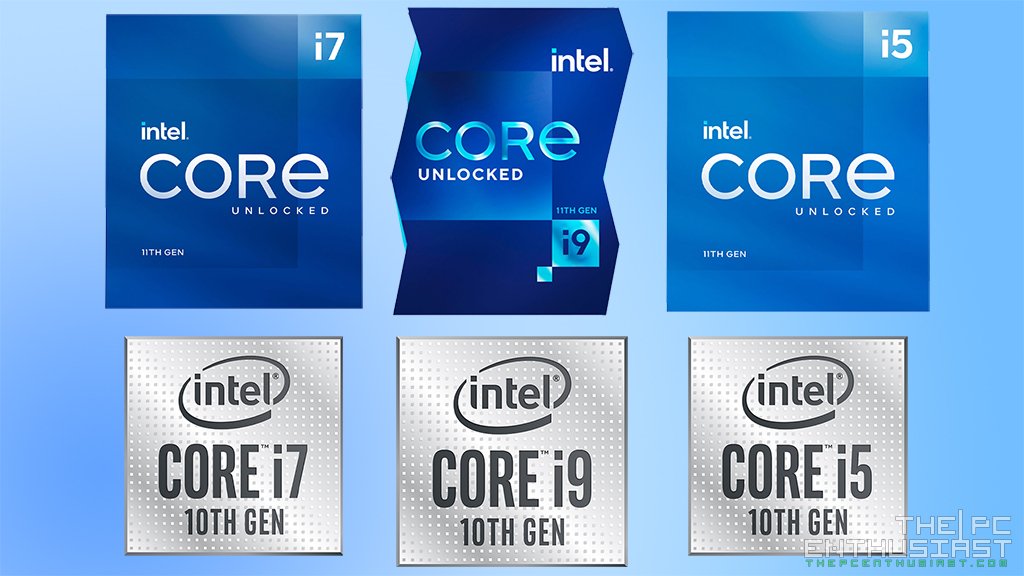
Intel 11th Gen Rocket Lake vs 10th Gen Comet Lake – The Features
Right off the bat, the new Intel 11th Gen Rocket Lake CPUs namely the Core i9, i7, and i5 are based on the Cypress Cove Core architecture. It offers up to 19% IPC improvement but it still uses a 14nm+++(?) fabrication process. Notice that I did not include the Core i3, since the 11th Gen Core i3 is just a refresh of the Comet Lake Core i3.
The 11th gen CPUs come with an enhanced Intel UHD graphics featuring Intel Xe graphics architecture, offering up to 50% better performance. You’ll see that most of the 11th Gen Core i9, i7, and i5 CPUs are using Intel UHD Graphics 750. Except for the Core i5-11400 that has a slightly slower Intel UHD Graphics 730 instead.
When it comes to memory support, the 11th Gen CPUs natively support up to DDR4-3200MHz memory speed. While the 10th gen CPUs only support up to DDR4-2933MHz. Meanwhile, the 10th Gen Core i5 only supports up to DDR4-2666. Technically, you can install faster memory speeds but Intel would consider it as “overclocking”, and it’s outside the scope of their warranty.
There’s also up to 20 CPU PCIe 4.0 lane support, and yes this means PCIe Gen4 is supported but via CPU only. Intel also enabled support for Resizable BAR with their latest processors. And there are enhancements on media support; including 10bit AV1, 12bit HEVC, E2E compression, integrated HDMI 2.0, and HBR3.
When Intel released their 10th Gen Comet Lake CPUs, they introduced Thermal Velocity Boost and Turbo Boost Max Technology 3.0. This time, the company is adding Intel Deep Learning Boost technology. However, based on the reviews I read and watched, the 11th Gen CPUs aren’t as good when it comes to (manual) overclocking compared to their predecessor.
The 11th Gen CPUs are using the same socket type as the 10th Gen CPUs. This means that you can use either CPU on either Z490 or Z590 motherboards. However, there are a few improvements that the Intel 500 series chipset or Z590 motherboard offers. Features like USB 3.2 Gen 2×2 20Gbps support, Wi-Fi 6E, and Thunderbolt 4 support.
NOTE: I recently found out that some Z490 motherboards DO NOT support the 11th gen Intel processors (yet). We don’t know if the respective manufacturer(s) will release a BIOS update for their Z490 motherboards to support 11th gen or not. Some manufacturers have already released BIOS updates for their Z490 motherboards. But there are still Z490 motherboards that didn’t receive, and perhaps will never receive an update to support 11th gen CPUs. See update below.
Z490 Motherboards that are NOT Compatible with 11th Gen CPUs
UPDATE: I was planning to post another article for this one since I thought there would be a long list of Z490 motherboards that are not compatible with 11th gen CPUs. I recently checked Asus, Biostar, Gigabyte, and MSI’s websites and most of the Z490 motherboards already support the 11th gen CPUs with BIOS update. Except for some Asus Z490 motherboards.
So, as of May 19, 2021, below are Z490 motherboards that do not support Intel’s 11th gen CPUs. Their respective product pages only mention it supports 10th gen Intel CPUs. I also check their respective CPU support list, and only 10th gen Intel CPUs are listed.
- ASUS ROG STRIX Z490-I GAMING
- ASUS ROG STRIX Z490-G GAMING (WI-FI)
- ASUS ROG STRIX Z490-G GAMING
- ASUS PRIME Z490-V
- ASUS PRIME Z490-P/CSM
- ASUS PRIME Z490M-PLUS/CSM
- ASUS PRIME Z490-P
- ASUS PRIME Z490M-PLUS
- ASUS PRIME Z490-A/CSM
If you own one of these motherboards, there is no guarantee that Asus will release a BIOS update to support 11th gen CPUs. I have an Asus ROG Strix Z490-I Gaming and unfortunately, my Core-i5 11400F doesn’t work with it. Anyway, let’s move on to the specs comparison below.
Below is a specs comparison between the 11th Gen CPUs vs 10th Gen CPUs. I did not include the Core i3 and the “T” SKUs in the table.
11th Gen vs 10th Gen Specs Comparison
| Processor | Cores / Threads | Base Freq | Max Turbo | All Core Turb | Cache | iGPU | TDP | Price |
|---|---|---|---|---|---|---|---|---|
| i9-11900K | 8 / 16 | 3.5 GHz | 5.3GHz | 4.7 GHz | 16MB | Intel UHD 750 | 125W | $620 |
| i9-11900KF | 8 / 16 | 3.5 GHz | 5.3GHz | 4.7 GHz | 16MB | None | 125W | $580 |
| i9-11900 | 8 / 16 | 2.5 GHz | 5.2GHz | 4.6 GHz | 16MB | Intel UHD 750 | 65W | $530 |
| i9-11900F | 8 / 16 | 2.5 GHz | 5.2GHz | 4.6 GHz | 16MB | None | 65W | $500 |
| i9-10900K | 10 / 20 | 3.7 GHz | 5.3 GHz | 4.8 GHz | 20MB | Intel UHD 630 | 125W | $460 |
| i9-10900KF | 10 / 20 | 3.7 GHz | 5.3 GHz | 4.8 GHz | 20MB | None | 125W | $450 |
| i9-10850K | 10 / 20 | 3.6 GHz | 5.2 GHz | 4.7 GHz | 20MB | Intel UHD 630 | 125W | $380 |
| i9-10900 | 10 / 20 | 2.8 GHz | 5.2 GHz | 4.5 GHz | 20MB | Intel UHD 630 | 65W | $380 |
| i9-10900F | 10 / 20 | 2.8 GHz | 5.2 GHz | 4.5 GHz | 20MB | None | 65W | $349 |
| i7-11700K | 8 / 16 | 3.6 GHz | 5.0 GHz | 4.6 GHz | 16MB | Intel UHD 750 | 125W | $405 |
| i7-11700KF | 8 / 16 | 3.6 GHz | 5.0 GHz | 4.6 GHz | 16MB | None | 125W | $455 |
| i7-11700 | 8 / 16 | 2.5 GHz | 4.9 GHz | 4.4 GHz | 16MB | Intel UHD 750 | 65W | $345 |
| i7-11700F | 8 / 16 | 2.5 GHz | 4.9 GHz | 4.4 GHz | 16MB | None | 65W | $360 |
| i7-10700K | 8 / 16 | 3.8 GHz | 5.1 GHz | 4.7 GHz | 16MB | Intel UHD 630 | 125W | $320 |
| i7-10700KF | 8 / 16 | 3.8 GHz | 5.1 GHz | 4.7 GHz | 16MB | None | 125W | $298 |
| i7-10700 | 8 / 16 | 2.9 GHz | 4.8 GHz | 4.6 GHz | 16MB | Intel UHD 630 | 65W | $323 |
| i7-10700F | 8 / 16 | 2.9 GHz | 4.8 GHz | 4.6 GHz | 16MB | None | 65W | $280 |
| i5-11600K | 6 / 12 | 3.9 GHz | 4.9 GHz | 4.6 GHz | 12MB | Intel UHD 750 | 125W | $265 |
| i5-11600KF | 6 / 12 | 3.9 GHz | 4.9 GHz | 4.6 GHz | 12MB | None | 125W | $290 |
| i5-11600 | 6 / 12 | 2.8 GHz | 4.8 GHz | 4.3 GHz | 12MB | Intel UHD 750 | 65W | $265 |
| i5-11500 | 6 / 12 | 2.7 GHz | 4.6 GHz | 4.2 GHz | 12MB | Intel UHD 750 | 65W | $218 |
| i5-11400 | 6 / 12 | 2.6 GHz | 4.4 GHz | 4.2 GHz | 12MB | Intel UHD 730 | 65W | $184 |
| i5-11400F | 6 / 12 | 2.6 GHz | 4.4 GHz | 4.2 GHz | 12MB | None | 65W | $175 |
| i5-10600K | 6 / 12 | 4.1 GHz | 4.8 GHz | 4.5 GHz | 12MB | Intel UHD 630 | 125W | $223 |
| i5-10600KF | 6 / 12 | 4.1 GHz | 4.8 GHz | 4.5 GHz | 12MB | None | 125W | $208 |
| i5-10600 | 6 / 12 | 3.3 GHz | 4.8 GHz | 4.4 GHz | 12MB | Intel UHD 630 | 65W | $228 |
| i5-10500 | 6 / 12 | 3.1 GHz | 4.5 GHz | 4.2 GHz | 12MB | Intel UHD 630 | 65W | $220 |
| i5-10400 | 6 / 12 | 2.9 GHz | 4.3 GHz | 4.0 GHz | 12MB | Intel UHD 630 | 65W | $165 |
| i5-10400F | 6 / 12 | 2.9 GHz | 4.3 GHz | 4.0 GHz | 12MB | None | 65W | $151 |
*Max Turbo and All Core Turbo is “up to” XX GHz.
*The Retail price listed above is accurate at the time this article was published. Retail prices are subject to change and may vary from one retailer to another.
What’s the Difference Between a “K”, “F” and non-K/F CPU?
Just a quick note for the uninitiated or uninformed. “K” series CPUs, like the Core i9-11900K or i7-10700K, are unlocked CPUs and can be overclocked. Meanwhile, CPUs that do not have a “K” on their model name is locked and can not be overclocked. CPUs with an “F” mean that the CPU does not have an iGPU or integrated graphics. And a “KF” basically means it doesn’t have integrated graphics, but it’s still overclockable.
Reasons To Buy an 11th Gen Rocket Lake CPU
Here are some reasons why I think you should choose an 11th Gen CPU over the 10th Gen CPU:
- It’s newer and offers higher IPC performance compared to its predecessor;
- Faster single-core performance vs 10th Gen CPUs;
- It has support for PCIe 4.0 interface;
- Generally better gaming performance, although it varies from one game to another.
Reasons To Buy a 10th Gen Comet Lake CPU Instead
Now here are some reasons why I think the 10th Gen CPU is the better choice vs the 11th Gen CPUs:
- 10th Gen Core i9 has 10 cores and 20 threads. 11th Gen CPU is only up to 8 cores / 16 threads;
- Better overclocking potential, at least based on the reviews;
- 10th Gen CPUs are cheaper now and offers better value or price to performance;
- Slightly better power draw or slightly efficient.
What’s My Recommendations – 11th Gen or 10th Gen Intel CPU?
There are plenty of reviews out there and numerous data would suggest that the Intel Core i9-11900K is simply a no-go. It’s very expensive for an 8 core / 16 thread CPU and it’s quite inefficient as well. It also has the same core and thread count as the Core i7-11700K. If you look at it, there’s no real difference between the i7 and i9; except for the clock speeds and how the CPU behaves when it comes to boosting clock speeds.
If it was me and my money was on the line, I would get the 10th Gen Intel Core i9-10850K instead. Currently, it is the better deal, at least for my use case. It’s a 10-core, 20 thread CPU and it’s currently selling for around $380 (before tax). This is not only great for gaming but productivity as well. It performs very similarly to an i9-10900K. Their only difference is the i9-10900K is 100MHz faster on paper.
If there’s a “good” CPU that I can recommend from the current generation, I guess that would be the Core i5-11600K, or a Core i5-11400(F). Both CPU undercuts its AMD counterpart, like the Ryzen 5600X for the i5-11600K. It is priced competitively and performs quite well for its segment. The Core i5-11600K can compete with the Ryzen 5 5600X in price and performance. But the 5600X is still the more efficient CPU, thanks to its 7nm fabrication process. So I guess the 5600X is (still) the clear winner if you can get one for $299 (MSRP).
This is just a general recommendation and the best or optimal CPU for you will vary depending on your need and budget. So, which CPU and platform will it be for you? Rocket Lake or Comet Lake? Or perhaps AMD’s Zen 3?
Also, can’t buy a graphics card? Perhaps you might be interested in a prebuilt gaming PC instead.

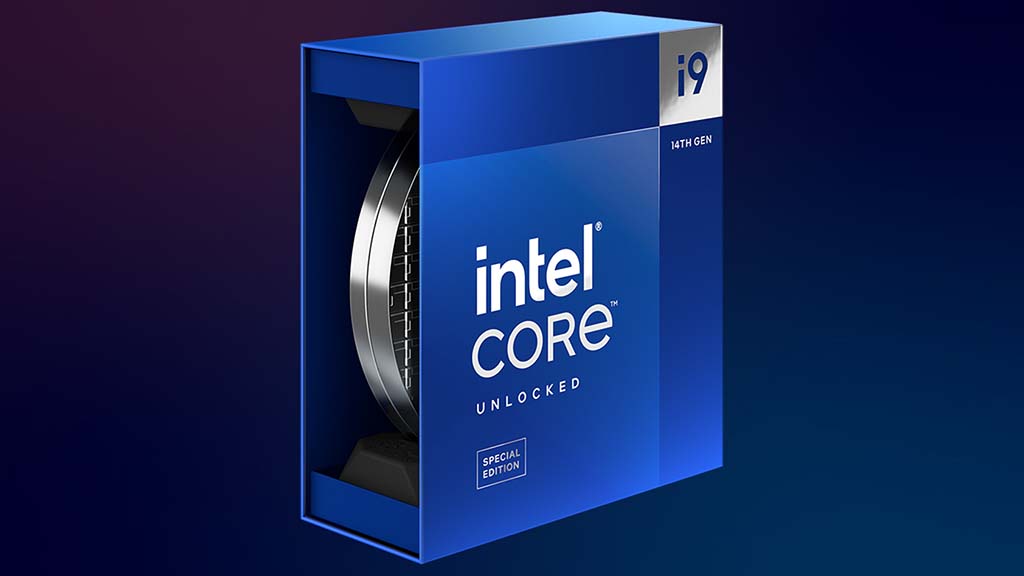
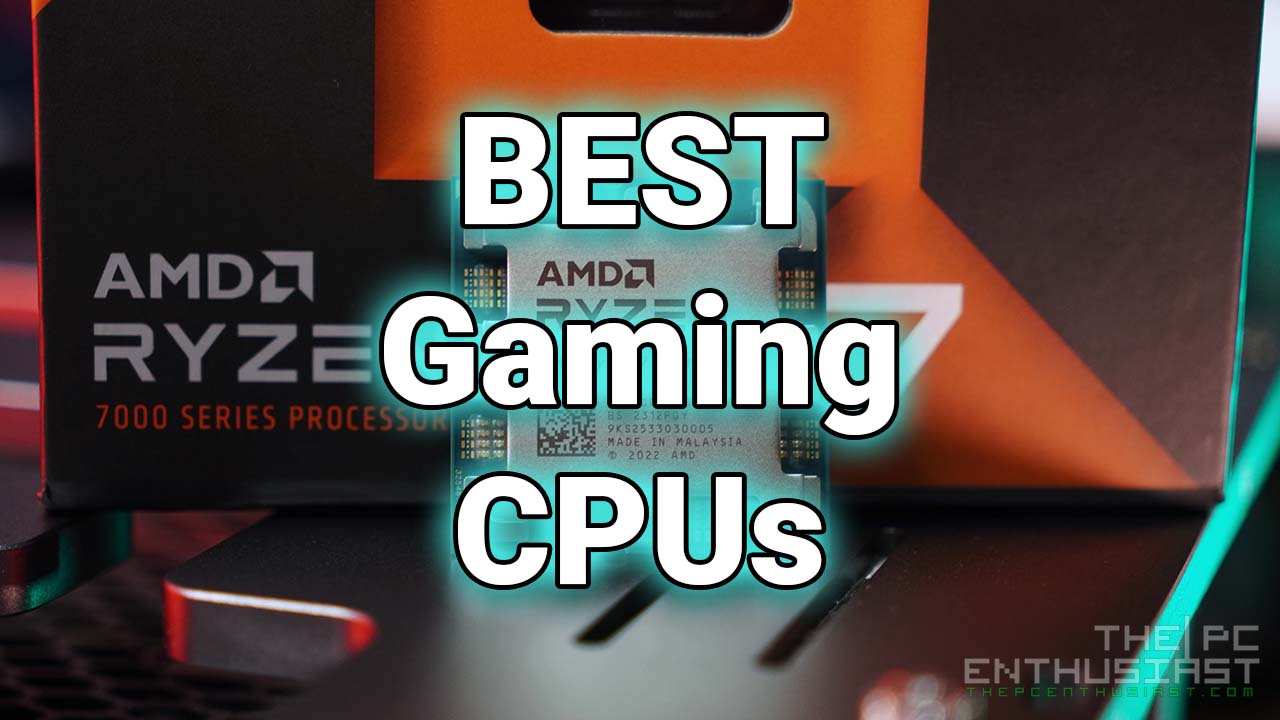
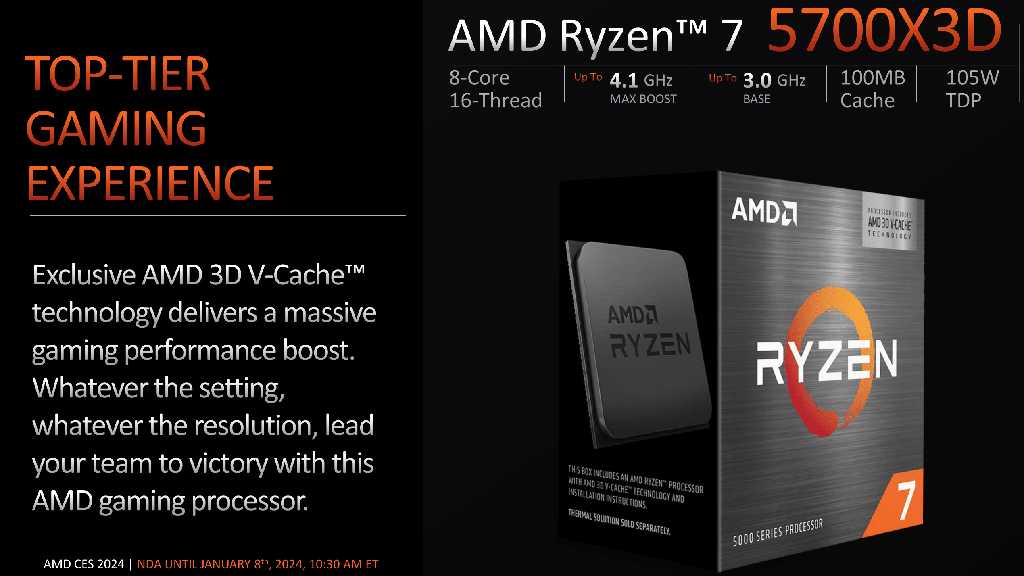
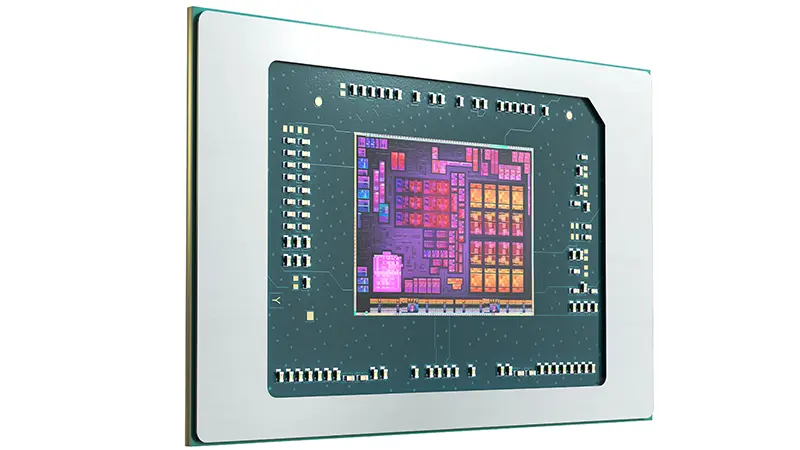
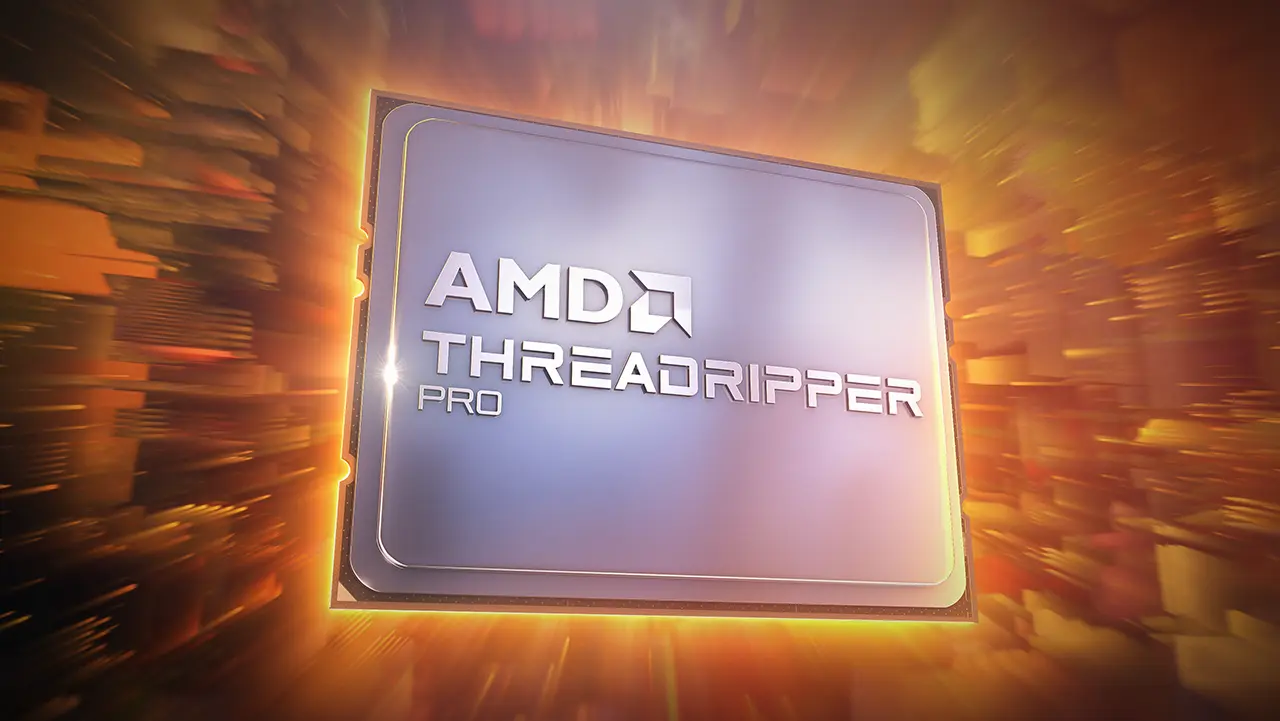
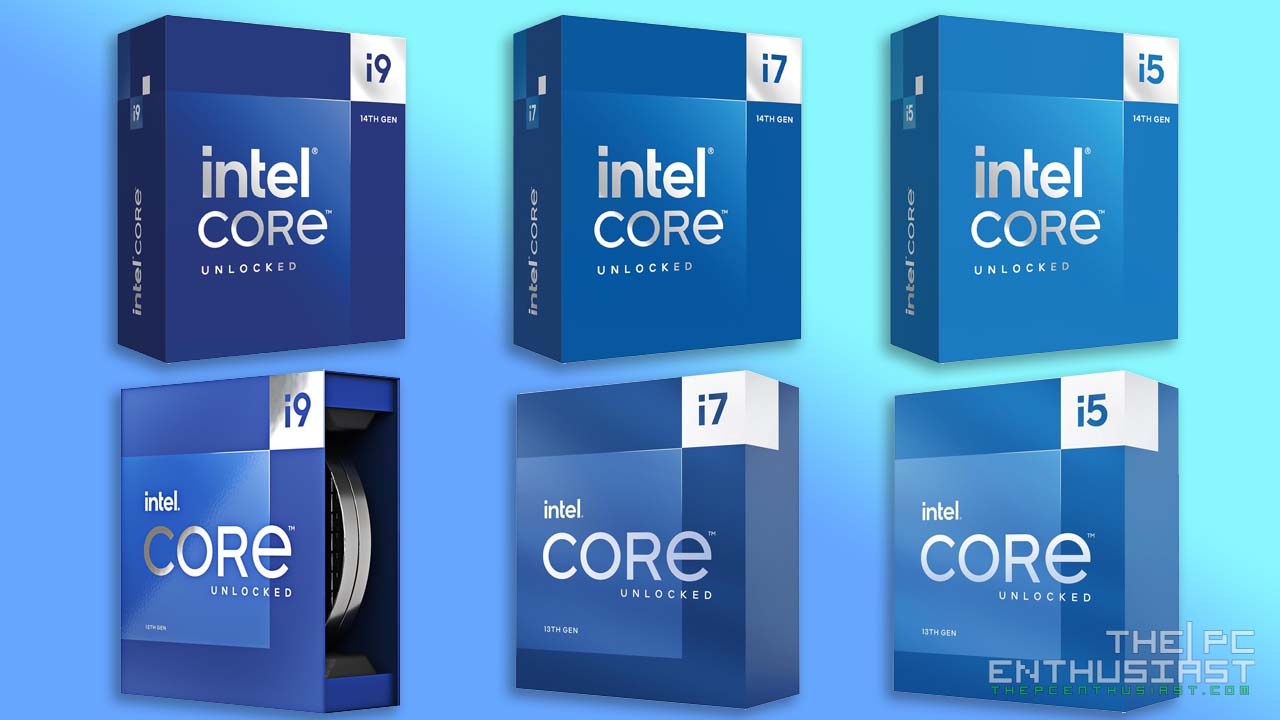

Great to read good honest feedback without bias, And answer the question that was asked.
Kindest regards
is it something I am missing or 11700 is cheaper than 11700F
there must be some mistake
F version suppose to be cheaper
No, you are not missing anything. At the time this article was published, and that time I got the prices, those were the numbers.
I, too, was scratching my head at that time since the “F” should have been cheaper.
I’m sure the prices have changed now, including the availability.
But some 3rd party retailers still sell it for high.
Newegg.com and Amazon.com (not the 3rd party sellers) usually sell below MSRP, sometimes at MSRP.
Why would anyone wishing to future-proof want an i5 instead of an i9, please? My i7 PC seems much faster than the i5 all things considered and it would seem that the i9 would be faster still. What I am concerned about is ensuring a new PC to be UHD capable and in my opinion it seems the first on your list does this? Your article is well presented and helpful thanks.
well it really depends what you want to use the PC for. A i9 costs more, can be overkill especially since gaming relies more on the GPU than the CPU, and a i9 can put out a lot of heat and be difficult to cool.
I am a student from India and
I am about to start my Computer Science Engineering 1st year in college.
So could you please mail me a few BUDGET Laptops to Buy for my studies.
I am doing scientific number crunching, these are single core programs in C++ or C that I compile using Developer Studio Community Edition. They iterate some floating point calculations. I need to know which is the fastest clock speed and which generation 11th or 10th? I do not care about gaming or multi tasking or graphics, the code just runs for days. One thing I need in this leading edge R&D application I am getting paid to do is rapid access to memory back and forth. I was excited to learn about NVME low latency to SSD. Which motherboard and chip would you suggest for this that can also maximise the above performance (like the old Cray XMP with SSD on my desktop now)?
I’m not familiar with your field. But clock speed alone is no longer the determining factor of how fast a CPU is these days. Ryzen 5000 CPUs have lower clock speeds compared to Intel’s 10th and 11th gen, yet they are faster and better in general.
Again, not familiar with what you need, but the fastest and latest Intel has to offer is their new 12th Gen Intel Alder Lake CPUs. You might want to check that one out.
11th and 10th gen are already considered “previous gen” at this point. And the 12th gen Alder Lake CPUs are the “fastest” for now.
Great feed back, really helpful, thank you very much.